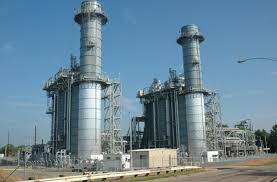By Jeph Ajobaju, Chief Copy Editor
Power generation is expected to double in Africa by 2030 but will pose risk to global climate commitments as two-thirds of generated electricity on the continent will be sourced from fossil fuel, according to a new research.
The research, conducted by Oxford University academics, predicted an estimated 18 per cent of the generation to come from hydro-energy projects.
Such projects, they noted, also have their own challenges, including vulnerability to an increasing number of droughts caused by climate change.
The research was conducted by Oxford Smith School of Enterprise and the Environment, with Galina Alova as study lead author and researcher; and Philipp Trotter as study author and researcher.
It looked into Africa’s energy generation landscape, using a state-of-the-art machine-learning technique to analyse the pipeline of more than 2,500 planned power plants and their chances of successful commission.
It also shows the share of non-hydro renewables in African electricity generation is likely to remain below 10 per cent in 2030, although it varies by region.
Increased energy demand
“Africa’s electricity demand is set to increase significantly as the continent strives to industrialise and improve the wellbeing of its people, which offers an opportunity to power this economic development through renewables,” Alova said.
“There is a prominent narrative in the energy planning community that the continent will be able to take advantage of its vast renewable energy resources and rapidly decreasing clean technology prices to leapfrog to renewables by 2030 – but our analysis shows that overall it is not currently positioned to do so.”
Trotter added that “the development community and African decision-makers need to act quickly if the continent wants to avoid being locked into a carbon-intense energy future.
“Immediate re-directions of development finance from fossil fuels to renewables are an important lever to increase experience with solar and wind energy projects across the continent in the short term, creating critical learning curve effects.”
The study, per reporting by Nairametrics, suggests that a decisive move towards renewable energy in Africa would require a significant shock to the current system, such as large-scale cancellation of fossil fuel plants being planned.
It identifies ways in which planned renewable energy projects can be designed to improve their success chances – for example, smaller size, fitting ownership structure, and availability of development finance.
Fossil fuels
Fossil fuels include coal, petroleum, natural gas, oil shales, bitumen, tar sands, and heavy oils.
All contain carbon and were formed as a result of geologic processes acting on the remains of organic matter produced by photosynthesis, a process that began thousands of years ago.
These non-renewable fuels supply about 80 per cent of the world’s energy. They provide electricity, heat, and transportation, while also feeding the processes that make a huge range of products, from steel to plastics.













